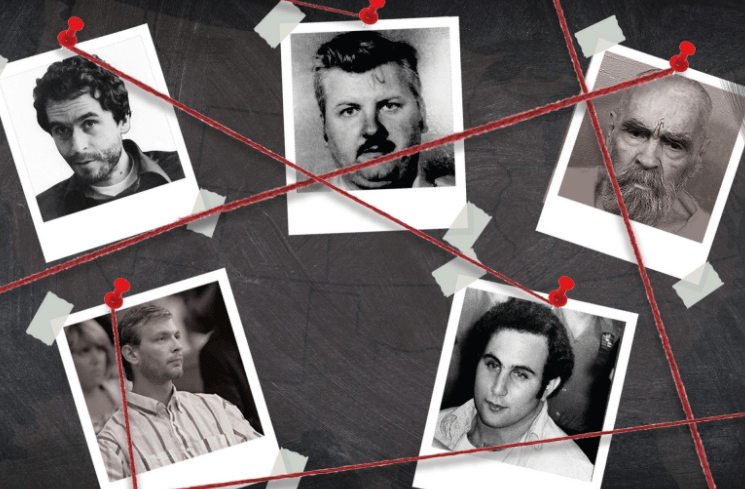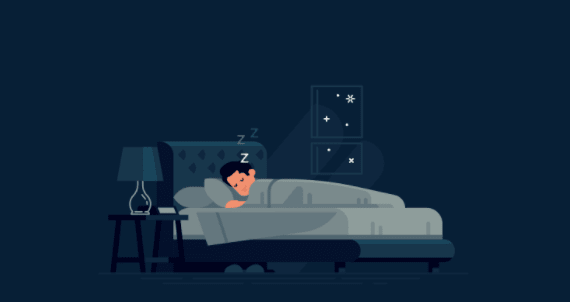BY LENA SINGH
TECH TIMES
CREATING THEM
“I want that one,” the little boy said, while pointing at the cute, brown teddy bear. He wanted to squeeze the plush toy and take it wherever he went.
“I want that one,” the bearded man said, with a bloody charm in his eyes, as he pointed to the short and pretty girl. He wanted to squeeze her neck and smell her blood on his hands.
Have the killers we see on television or in our nightmares been like that since birth? Or did humans turn those pure children into beasts with their evil? Our experiences turn us into who we are. Not many of us are advantageous enough to buy whatever we’d like without looking twice at the price tag and many of our parents might have been completely absent from our lives. Others might have been sexually assaulted, while some might have been called racial slurs their entire lives. Yet, did you decide to take your revenge on the world by slaughtering your enemies one by one? Probably not. "We all have the power to kill in our hands, most of us are afraid to use it. Those who aren't, control life itself."
One can also conclude that it isn’t entirely their fault. Reasons vary from genetics to mental disorders. Many serial killers have suffered mental and physical abuse which could have caused irreversible brain damage. Some could have had psychopathic tendencies as kids that didn’t get treated. Maybe it could be that their families, friends, and the adults around them took no action and are partly responsible for the chaos they are now. We choose what we want to be, who we want to be. Recent studies highlight that some might not entirely have the luxury of choice.
THE MAKING
“To me, this world is nothing but evil, and my own evil just happened to come out.” When you are put through unfathomable trauma because of the living and breathing, the revenge often cannot be contained. So, perhaps all they did see through those hollow eyes was loneliness and sin in their confined environments. The many serial killers we know today had a relatively hideous childhood filled with either physical abuse, bullying, oblivious parents, or lived in an overall dreadful place. Statistically, 68% of serial killers have faced some sort of abuse, and that can take a toll on one’s mental health and fill their mind with awful manifestations. Having no one to stand up for you while you are constantly looked down upon; it can make you into what they make you out to be. The separation from the rest of the world can have one lack empathy and social skills, it can make one more belligerent and paralyzed. These types of surroundings can turn you into something that you never thought you’d see when you looked into the mirror.
While these are just some of the numerous reasons why kids grow up to be murderers, those reasons sprout into more gruesome motives. To demonstrate, serial killer and sex worker Aileen Wurnos would lure the males into sex and a while after, kill them with firearms each time. But, if you see that in the perspective that her father had been arrested as a child molester, her grandparents were alcoholic abusers, and her brother soon died of cancer: is pity generated? It is mentioned that she did these deeds for the control over the males she encountered, to assert her power in the situation. Could her past lessen her criminal responsibility? However, serial killer Ted Bundy, who had kidnapped, raped, and murdered more than 30 women in his lifetime, looked to have had a close to perfect youth. Unless you looked beyond that, because even salt can be mistaken for sugar. His history consisted of a vicious grandfather with temper problems and he lived, thinking his mother was his sister. This may not seem like a definite cause to grow up and became one of the most notorious serial murderers. Sometimes motives are unexplainable and other times they are as clear as day.
- Thrill
- Power
- Wanting to prove something
- Attention
- Sexual desires
- Control
- Personal satisfaction
- Financial gain
- Ideology (targeting a specific race or gender)
- Anger
- Competition
- Boredom/Impulsivity
Many cases are self-reported so one has to look deeper for some sort of explanation. For many criminals, it may seem as if they’ve had a normal childhood but some have had obsessive behaviors, weird hobbies, no friends, and done drugs. One might have heard of copycat serial killers, who take part in a “competition” to see which person could kill the most and they get off on that attention. Possibly if the world were kinder to these distinct children, the madness would lessen and it’d be easier to live alongside each other without passing judgements. Unfortunately, we all have a dark side that is hidden. We all have deep rooted secrets and hidden agendas. But those who choose to exploit that side are the ones that end up behind bars or live life on the run. “Look down at me and you see a fool. Look up at me and you see a God. Look straight at me and you see yourself.”
INSIDE THE BRAIN
“I didn’t want to hurt them. I wanted to kill them.” The joy of killing is frequently not the same as inflicting pain, which means that some killers just can’t help it. Maybe it’s not so much that serial killers are made, but more by the fact that we are unmade. Most of us are raised with exceptional parents, a shelter above our heads, and a good education to start at. Even if you don’t fit in that category and your parents might be a certain way or your life seems lonely, your brain hasn’t been altered in a significant way. Your anger hasn’t reached a limit or you haven’t been set off enough to go stab your family in their sleep. According to the Treatment Advocacy Center, over 20% of mass killers have some sort of mental illness. Following, many murderers have gone through some sort of physical abuse as a kid that might have damaged their prefrontal cortex. This area of the brain is vulnerable and controls our emotional impulses. This results in the fact that many murderers cannot control their bitterness or desolation, which causes them to go to such lengths to take out their emotion in that particular time.
Many murderers lack a gene that produces Monoamine oxidase A (MAOA) - warrior genes - which regulates neurotransmitters that involve impulse control. Essentially, if you don’t have that gene, you’re more prone to violence. Moreover, criminal minds are usually different to non-criminal minds. Deficiencies commonly found in serial killer brains are connected to the behavioral results: reduced empathy, overconfidence, violent behavior, or spontaneity. Research on neuroplasticity underlines that abnormal brain structures of killers are a combination of experience and “born” with it. When serial killers dwell on murder, they are more likely to enact that behavior. Additionally, the brain is capable of desensitizing: a technique commonly used to rid humans of their fears or phobias. This approach can make one face their fears head on. The gradual exposure makes the fear neurons less prone to fire intensely when confronted with the fearful stimulus. In other words, the nervousness or fear when committing the first murder is unforgetabble. But as serial killers go to their next kill and the kill after that, they become more reckless or stable and their anxiety or guilt dies. A lot of them are able to live double lives, two totally contrasting characters. Take for example, Batman.
Of course, there are many people that have such a gene that has been passed along generations but they aren’t at all dangerous. There are plenty of survivors of any type of abuse from family members or strangers that have gone on to share their story and educate, instead of exacting their revenge. There are many people who turn themselves in because the guilt eats them up or some are caught after one murder. There have been many such movies where the murderers feel guilt and remorse toward their victims, but cannot stop due to a formed addiction. There have been criminals who grew up wealthy and enjoyed their lives, but their genetics were at fault. No one chooses to become a murderer when they are born, just like no one chooses to be poor. Then again, it is you. Which somehow and somewhere, does make it your fault. Gene or no gene. Regret or no regret. That choice made in the spur of the moment is what remains. How right an ending that is in opinion, is imaginable. "Being a serial murderer is a form of slow suicide, deeply self-destructive."
THE FUTURE
“We serial killers are your sons, we are your husbands, we are everywhere.” Regardless, that doesn’t mean that biologists and psychiatrists everywhere can’t do something about it. Our sciences and technology are flourishing daily, which opens up the endless possibilities in discovery. Research is focusing on ways to reduce violent behavior by teaching families who are at risk: parenting skills. How to communicate with their child effectively, compromise, and make their participation noticeable. Similarly, habit modification through a young child without slapping or threats. Psychologists, therapists, and psychiatrists might be able to spot early warning signs such as abusing animals or committing minor acts of crime and can intrude. Then there are also the obvious ways for many adults to intervene by removing the kids from abusive households, juvenile delinquent behavior, and helping provide promising role models. Many of us can study or feel out how kids interact with other kids of their age, with their environment, and how they verbalize or deal with their emotions. These are no definite techniques because there are flaws in all and anything. Our future hopes to lessen that occurrence, to not just lower the crime rate, but craft thriving human beings. Personally speaking, no one is born a murderer. We all come out of the womb with doe eyes and blank minds. It is the world that targets those innocent faces and makes them into the devils we know today. “What was done to me was monstrous. And they created a monster.”
REFERENCES
- BBC. (2015, March). Are murderers born or made? BBC News. Retrieved March, 2021, from https://www.bbc.com/news/magazine-31714853
- Brogaard, B. (2018, March). Do All Serial Killers Have a Genetic Predisposition to Kill? psychology today. Retrieved March, 2021, from https://www.psychologytoday.com/us/blog/the-superhuman-mind/201803/do-all-serial-killers-have-genetic-predisposition-kill#:~:text=As%20defects%20in%20the%20regulation%20of%20the%20dopamine,the%20chances%20of%20someone%20becoming%20a%20serial%20killer
- Conroy, J. O. (2018, August Friday). What makes a Serial Killer? the guardian. Retrieved March, 2021, from https://www.theguardian.com/us-news/2018/aug/10/what-makes-a-serial-killer


